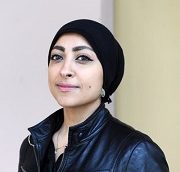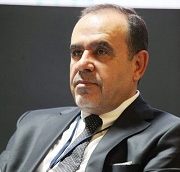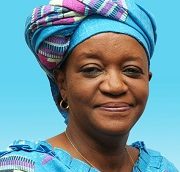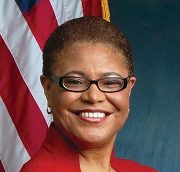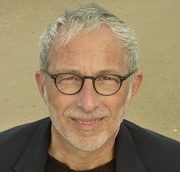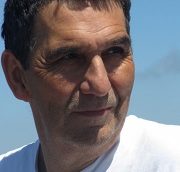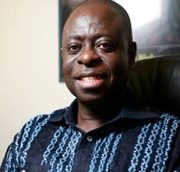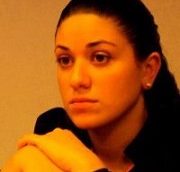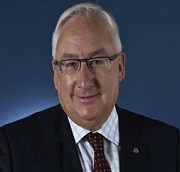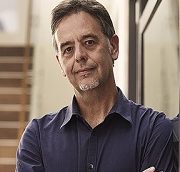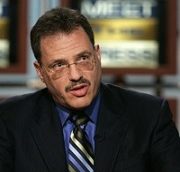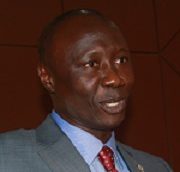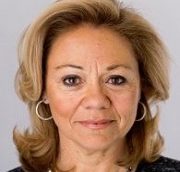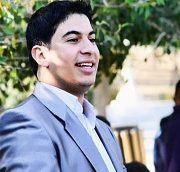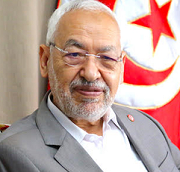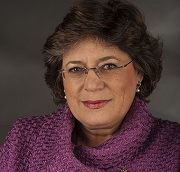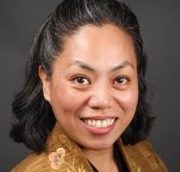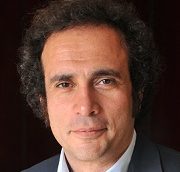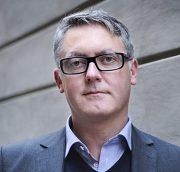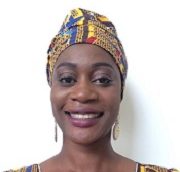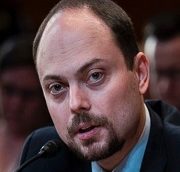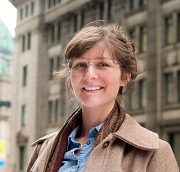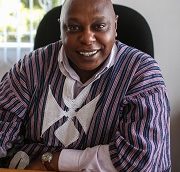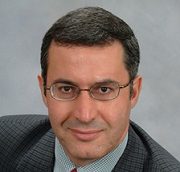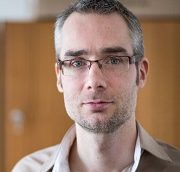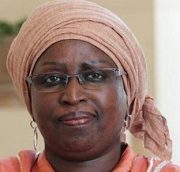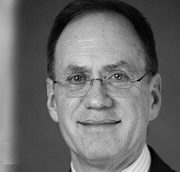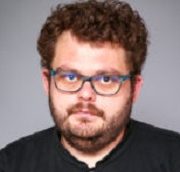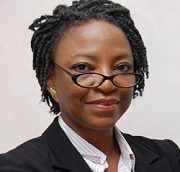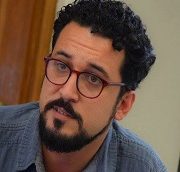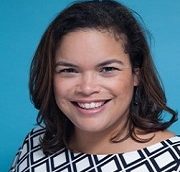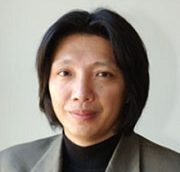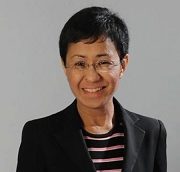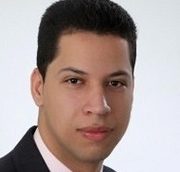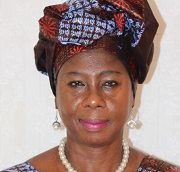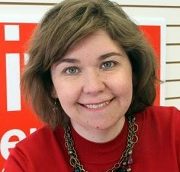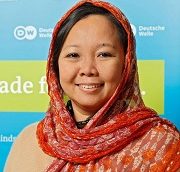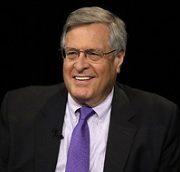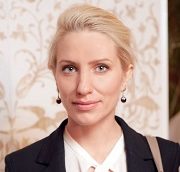Ninth Global Assembly
“Building Strategic Partnerships for Democratic Renewal”
Dakar, Senegal—May 6-9, 2018
Sunday, May 6
-
12:00 pm - 3:00 pm: Registration
-
1:00 pm - 3:30 pm: Democracy Lounge
The Democracy Lounge will be an informal space for participants to network at the Assembly. It will also feature different informational drop-in clinics to provide quick tips, tools, and trainings to aid participants in their work.
Democracy Clinic 1: Digital Security
The digital revolution has transformed the world’s ability to interact with others and access information. Today, democracy activists conduct large parts of their work online, using digital media and other outlets that enable new forms of mass advocacy, but also render activists vulnerable to digital surveillance and attacks. The Digital Security Clinic, hosted by DefendDefenders, will offer participants the chance to identify their digital security vulnerabilities and provide guidance on how to proactively protect themselves and their devices.
Organized by: Defend Defenders
Democracy Clinic 2: Re-imagining Democracy Dialogues
The CIVICUS 2018 State of Civil Society Report discusses 10 key trends affecting civil society, including political polarization and divided societies. Drop by the CIVICUS Democracy Dialogue Clinic, to discuss the current challenges facing democracy and civic space in different regions and to collaborate with other activists to identify solutions. CIVICUS is a global alliance of civil society organizations and activists dedicated to strengthening citizen action and civil society throughout the world.
Organized by: CIVICUS
Democracy Clinic 3: Democracy Cake Educational Tool
Are there any “ingredients” that are essential to building and sustaining a democracy? With the Rafto Foundation for Human Rights’ “Democracy Cake” board game, participants will learn hands-on what ingredients are necessary for building and nourishing a democracy. The Rafto Foundation for Human Rights is an organization dedicated to the global promotion of human rights. It funds and facilitates projects, and offers human rights education to local and international audiences.
Organized by: The Rafto Foundation for Human Rights
Democracy Clinic 4: Building Sustainable NGOs
In today’s challenging economic and political environments, the Center for International Private Enterprise (CIPE) posits that nongovernmental organizations (NGOs) may become ineffective if they are forced to tailor initiatives around donor priorities. In CIPE’s Building Sustainable NGOs Clinic, participants will have the opportunity to build a “portfolio” to identify different funding sources that will ease donor-dependence and encourage local stakeholder engagement.
Organized by: Center for International Private Enterprise
-
4:00 pm – 6:30 pm: Opening Session
♦ Welcome Remarks: Zainab Bangura, Chairperson, Steering Committee of the World Movement for Democracy
♦ Remarks by Senegalese Civil Society Consultative Committee
♦ Remarks by a Representative of the Senegalese Government
♦ Keynote Address: Isatou Touray, Minister of Trade, Industry, Regional Integration and Employment, Gambia
♦ Remarks by Congresswoman Karen Bass, U.S. House of RepresentativesPanel Discussion on the State of Democracy:
♦ E. Gyimah-Boadi, Ghana
♦ Vladimir Kara-Murza, Russia
♦ Tanya Hamada, The Philippines
♦ Amr Hamzawy, Egypt
♦ Larry Diamond, USA
♦ Ayo Obe, Nigeria (Moderator) -
7:00 pm – 9:00 pm: Dinner
Monday, May 7
-
8:00 am - 10:00 am: Registration
-
9:00 am – 10:45 am: Plenary Session: Integrating Democratic Values with Traditional Culture and National Identity
Authoritarian governments around the world co-opt notions of cultural and traditional values to justify anti-democratic policies. They accuse civil society of being “foreign agents” who seek to destroy the moral and cultural underpinnings of their communities. Such allegations are unfounded. Democracy, in fact, must be rooted in local culture and institutions to succeed, and democratic reforms must have popular support from communities. To defend themselves against authoritarians, civil society must develop counter narratives that demonstrate how democratic norms support, rather than contradict, the traditional values and incorporate traditional values in their programs. How can democrats affirm the universality of democratic norm in traditional contexts and remain active despite deepening authoritarianism?
Panelists:
♦ Ketevan Chachava, Center for Development and Democracy, Georgia
♦ Oraib Al-Rantawi, Al Quds Center for Political Studies, Jordan
♦ Alissa Munawaroh Wahid, Gisdiroam Metwprl, Indonesia
♦ Nicolás Panotto, Multidisciplinary Studies Group on Religion and Public Advocacy, Argentina
♦ Yascha Mounk, Harvard University, USA
♦ Igor Blazevic, Prague Civil Society Center, Czech Republic (Moderator) -
10:45 am – 11:15 am: Coffee Break
-
11:30 am – 1:30 pm: Concurrent Workshops
Panel: Challenges and Successes to Citizen Inclusion in Senegal and Africa: Perspectives on the State of Affairs
Civil society plays a vital role in building and consolidating democracy. Across Africa and particularly in Senegal, civil society has always fought for respect for human rights and good governance. These efforts have focused on issues of equitable resource distribution, governance, human rights, and youth and women’s issues. Civil society has also strived for inclusive participation and a stable resolution to security concerns. What challenges has civil society overcome in Africa and Senegal in particular, and what have been the keys to their success?
Organized by: The Senegalese Consultative Committee of NGOs for the Assembly
Languages: English, FrenchWorkshop 1: Strengthening a Coalition for Democratic Renewal
Issued in May, 2017, the Prague Appeal for Democratic Renewal says “Collectively, these factors—the geopolitical retreat of the West, the resurgence of authoritarian political forces, the erosion of belief in democratic values, and the loss of faith in the efficacy of democratic institutions—have brought a historic halt to democratic progress and threaten a possible ‘reverse wave’ of democratic breakdowns. Democracy’s supporters must unite to halt the retreat and to organize a new coalition for its moral, intellectual, and political renewal.” To this end, the Coalition for Democratic Renewal (CDR) was launched in Prague in October, 2017 as a global initiative of intellectuals, activists, and politicians, concerned with the expanding influence of authoritarian regimes and the weakening of democratic systems from within. What steps should the CDR and other democrats take to “fashion persuasive arguments for liberal democracy that can shape the course of public discussion” and engage a growing number of politically apathetic citizens who may be skeptical of democratic institutions?
Organized by: Forum 2000
Language: EnglishWorkshop 2: Strengthening Regional Hubs to Protect Democrats at Risk
As authoritarian regimes around the world crackdown on pro-democracy actors, the need for safe spaces for democrats-at-risk becomes increasingly urgent. One response to this need has been the creation of “hubs,” which provide various types of assistance to democrats-at-risk from particular regions. In recent years, such hubs have been created not only to help democrats avoid persecution, imprisonment, and repression, but to provide safe spaces for them to continue their important work advancing democratic values. What can be learned from these efforts; how can they be strengthened; and what opportunities exist for coordination in different regions of the world?
Organized by: The Project on Middle East Democracy
Languages: Arabic, English, FrenchWorkshop 3: Building Coalitions for Media Reform: Where do we go from here?
The threats to pluralistic and democratic media systems are more complex than ever, and the media environment faces profound challenges. Meeting these challenges and ensuring that media remains an enabler of democratic politics requires new coalitions. Successful coalitions merge technical knowledge and political skills to generate demand from the public and muster political will in government. What lessons and best practices have emerged regarding multi-stakeholder coalition building for media reform and what steps must be taken to expand these coalitions around the world?
Organized by: The Center for International Media Assistance
Language: EnglishWorkshop 4: Shadowed by Anti-Money Laundering and Countering Terrorism: How Can Civil Society Push Back Restrictions?
Governments around the world continue to impose restrictions on civil society organizations (CSOs) justified by a stated need to prevent money laundering and terrorist financing (known as AML/CT). These are not limited to specific laws, but sometimes disguised in various legal or administrative provisions and practices, which curtail the ability of CSOs to conduct activities or raise funds. It is therefore important to understand the actual global requirements for counter-terrorism measures so as to assess the acceptability of government restrictions and justifications, and the process through which global policy is shaped and translated into national law. How can CSOs work with others to counter measures that would overly restrict the not-for-profit sector?
Organized by: The International Center for Not-for-Profit Law
Languages: English, French, RussianWorkshop 5: Breaking Barriers: Empowering Young Women’s Political Leadership
With less than 2% of the world’s MPs under the age of 30, the pathway to young women’s political participation and leadership is fraught with challenges. Systematic barriers, often reinforced by religious, educational, and cultural institutions, limit the participation and potential of young women in political processes. Additionally, the media often perpetuates gender norms and values that exacerbate negative stereotypes and disparities. This workshop will leverage inter-generational experiences and help frame a global response to boost representation and participation of young women.
Organized by: The Gender Center for Empowering Development
Language: EnglishWorkshop 6: Forging New Alliances by Supporting Electoral Processes
Elections represent an opportunity for a broad spectrum of society to participate in democracy by debating issues, selecting leaders, and holding representatives accountable. This opportunity allows civil society to engage with a wide variety of actors by attending campaign events, conducting voter education programs, and observing election processes. This grants civil society a unique chance to interact with national authorities including bureaucrats and elected officials, media organizations, security services, business leaders, issue-oriented activists and community members who are otherwise difficult to reach. How can civil society use regional and national elections to establish sustainable partnerships and networks with new actors at home and abroad?
Organized by: Fundancion Nuevva Generacion Argentina
Languages: English, Spanish, Russian -
1:30 pm – 2:30 pm: Lunch
-
2:45 pm – 3:45 pm: Plenary Session: The Role of Parliamentarians for Democratic Renewal: Guardians of Democracy?
As noted in the World Movement’s “Call for Democratic Renewal” statement, public faith in democratic institutions has diminished, including in representative parliamentary institutions. Young people are also less likely to pursue public service, including as members of parliament, a mechanism to contribute to supporting pluralism and democracy. This session invites parliamentarians from different countries to discuss their reflections on the current public attitude toward their respective parliaments, and share their thoughts on how to close the gap between the public and their elected representatives.
Panelists:
♦ Svitlana Zalishchuk, Member of Parliament, Ukraine
♦ Ana Gomes, Member of European Parliament, Portugal
♦ Michael Danby, Member of Parliament, Australia
♦ Ya Kumba Jaiteh, Member of the National Assembly, The Gambia
♦ Anita Vandenbeld, Member of Parliament, Canada
♦ Ken Wollack, National Democratic Institute (Moderator) -
4:00 pm – 6:00 pm: Concurrent Workshops
Panel: Understanding Authoritarian Disinformation Efforts
Challenges emanating from the global information space have become a key threat to democracy around the world, and the digital revolution has enhanced public vulnerability to manipulation by information. New social media platforms, shifts in the funding environment, and the weakening of traditional media gatekeepers have allowed illiberal actors and authoritarian regimes to exacerbate democratic cleavages or extend competitive advantage. Responding to these challenges requires both collaboration and innovation. How can civil society activists link cutting-edge thinking on subjects such as computational propaganda, audience demand for disinformation, and techniques for addressing influence and propaganda; how can disparate political and civil society actors forge an integrated approach to respond to disinformation; and how might independent media increase trust and maximize their impact in a challenging environment?
Organized by: The International Forum for Democratic Studies
Languages: English, French, RussianWorkshop 1: Leveraging Regional Human Rights Mechanisms for the Protection of Civic Space
Worldwide, governments are cracking down on independent civil society using a combination of repressive legislation and direct forms of intimidation and persecution, ultimately weakening democratic values. An enabling environment for civic participation needs to be restored where it used to exist and built where it never existed. One avenue of response to this crackdown is to leverage regional human rights mechanisms such as the African, European, and Inter-American human rights systems. When domestic legal systems fail, these mechanisms serve as activists’ “first port of call” for redress, because they are more accessible and less costly than international mechanisms. Independent evaluations and judicial and quasi-judicial decisions by these systems have transformed the institutional foundations of democracies in many countries, established higher standards and norms, protected civil society, and made the international community aware of oppressive regimes. How can regional human rights mechanisms be used to augment international norms to respond to new, repressive tactics?
Organized by: The Robert F. Kennedy Human Rights and the International Center for Not-for-Profit Law
Languages: English, French, SpanishWorkshop 2: Worker and Employer Organizations Building Coalitions to Combat Kleptocracy and Corruption
Kleptocracy, or “egregious grand corruption,” represents an existential threat to democracy and inclusive, equitable economic development. Lower level corruption, on the other hand, can be systemic and, in some cases, no less damaging. Workers may be the first to detect and observe kleptocracy or corruption. Employers can be subjected to corrupt demands to obtain or keep business. With strong unions or employer organizations that understand the strategic benefits of fighting kleptocracy/corruption, individual workers and employers can be important in responding to the challenge. In several locations, unions and employer organizations are fighting to be part of the solution. Worker and employer representatives will discuss successful tactics, methods and practices they currently use to combat the problem, and how a broader range of civil society organizations can cooperate with worker and employer organizations in this fight.
Organized by: The Solidarity Center
Language: EnglishWorkshop 3: Transitioning from a People’s Movement to Democratic Consolidation
Peoples’ movements remain integral elements of democracy. Movements have birthed democratic transitions, shepherded governance reform, and bolstered democratic consolidation. The varying degrees of success that different movements have achieved illustrate the challenges facing democracy movements worldwide. What can we learn from recent peoples’ movements in Asia and Africa that have promoted democratic consolidation?
Organized by: The Institute for Leadership, Empowerment and Democracy (iLEAD) and the Korea Foundation
Languages: Arabic, English, FrenchWorkshop 4: Linking Parliamentary Associations to Promote Democratic Norms and Systems
Participants will engage in an open dialogue on their role in coordinating parliamentary associations. The workshop will discuss: 1) how parliamentary associations view their mandates with respect to democracy and human rights, and how they are able to engage their membership in advocacy, 2) what parliamentary associations view as their priorities in the coming years with regards to reversing negative trends in democracies, 3) what gaps currently exist in coordination among various parliamentary associations with respect to advocacy on democracy issues and agreement on areas where joint collaboration may be fruitful, and 4) what types of ongoing mechanisms, such as a democracy contact group, might be useful to ensure that parliamentary associations react in a coordinated fashion to developments relating to democracy and human rights.
Organized by: The National Democratic Institute
Language: EnglishWorkshop 5: Building Networks within the Human Rights Movement
Over the last three decades, civil society’s efforts to promote human rights have proliferated. CSOs have matured professionally, and international mechanisms to protect human rights and human rights defenders have strengthened. However, the situation for human rights defenders on the ground has deteriorated. We now witness a global attack against independent civil society actors. Human rights defenders need each other now more than ever. How can they defend civic space by working with networks and coalitions? What strategies, methods, and partnerships can they utilize to ensure their efforts are impactful?
Organized by: Human Rights House Foundation
Language: English, French -
6:30 pm – 8:30 pm: Cocktail Reception
Tuesday, May 8
-
9:00 am – 10:45 am: Plenary Session: New Voices and New Energy for Democratic Renewal
With the rise of authoritarianism around the world, youth participation in democracy seems to have diminished. Many attribute this development to a shift in values and lack of interest in democracy among young people, while others posit that youth are increasingly subject to discriminatory practices meant to exclude them from political spaces. Despite these challenges, young people have prioritized promoting their economic empowerment and cultivating leadership skills over engaging in traditional democracy building, which are fundamental to cultivating prosperous and inclusive societies. Are youth apathetic or are they simply ‘doing democracy’ differently? If youth are indeed apathetic, what are the transformative ideas and mechanisms that will motivate their active participation?
Panelists:
♦ Rinsola Abiola, All Progressive Congress, Nigeria
♦ Jatzel Roman, Latin American Youth Network for Democracy (Juventud LAC), Dominican Republic
♦ Kadhim Mohsin, Nissan Institute for Democratic Awareness, Iraq
♦ Arzu Geybulla Kurtulus, Freelance Journalist, Azerbaijan
♦ Andrej Nosov, Heartefact Fund, Serbia (Moderator) -
11:00 am – 1:00 pm: Concurrent Workshops
Panel: Strengthening the Voice of Business for Democratic Governance
The growing threat to democracy around the world requires a collaborative response from various sectors of society. The private sector plays an important role in shaping sustainable economic and democratic development and is central to ensuring a pluralistic society. Expanding business opportunities creates a stable environment for steady and long-term business growth. Its investment has proven to bolster the efforts of civil society movements, stimulate technological advancements, reinforce multilateral cooperation, and inspire philanthropic leadership. How can collaboration between the private sector and civil society be encouraged to address cross-cutting challenges facing society?
Organized by: The World Movement for Democracy and the Center for International Private Enterprise
Languages: English, FrenchWorkshop 1: Activism + Art = Artivism for Deepening Democratic Culture
Art, music, and other types of cultural performances have been used by the public to expand social and political dialogue for millennia. In an era where the public is increasingly losing trust in democracy, artistic expression is an important tool for reaching audiences with little interest in democratic processes. How can art be used to promote democratic participation and how can artists and civil society activists form productive and sustainable partnerships?
(Participants in this workshop are invited to work with West African and international artists to paint a mural on a wall of a municipal building in Dakar. The mural will be given to the City of Dakar as a gift, and will remain in the building after the Assembly concludes as an expression of global democratic solidarity.)
Organized by: Partners West Africa
Language: EnglishWorkshop 2: The Authoritarian Advantage: Modern Transnational Kleptocracy, and How to Fight It
Transnational modern kleptocracy, an extreme form of predatory, networked corruption powered by globalization, has become a pressing international problem and a challenge to democracy. Because it is a global issue, it cannot be defeated with a piecemeal approach confined to individual states. Effectively confronting kleptocracy requires a coordinated effort from civil society, the legal and business communities, journalists, and law enforcement. Recent efforts have focused on maximizing the impact of investigative reporting by linking journalists with key international networks, as well as deepening collaboration between journalists and activists uncovering kleptocracy and international advocacy organizations and litigators who can amplify the stories and advocate for political and legal consequences. How can scholars, journalists, activists, and policy experts better coordinate to combat the transnational aspects of kleptocracy and the dangers it poses to democracy?
Organized by: The International Forum for Democratic Studies
Language: EnglishWorkshop 3: Expanding Space for Next Generation: Strengthening Political Participation Mechanisms
The plenary session on New Voices and Energy for Democratic Renewal will address the numerous challenges underpinning youth political participation. Poverty, barriers to education, and multiple forms of stereotypes and discrimination restrict young people from engaging in political processes. However, young people have developed and adopted mechanisms that challenge the frequent recourse to old-fashioned, top-down frameworks, which hold little dividends for youth. These mechanisms are dynamic and often leverage or initiate national legislation, innovation and technology, civic movements, and regional cooperation strategies. This session will explore youth-driven mechanisms that are constructively opening up spaces for youth participation, and the challenges that limit their effectiveness.
Organized by: The African Movement for Democracy
Languages: Arabic, English, FrenchWorkshop 4: Protecting Civil Society’s Right to Access to Resources
The right of citizens to form associations and to receive funding to pursue their missions is enshrined in international human rights law. Yet, according to the International Center for Not-for-profit Law, over 160 laws in nearly 70 countries have been passed to restrict this right since 2012. Some of these laws seem innocuous, focusing on banking or taxation, but allow governments to surveil civil society organizations. Governments also use extra-legal tactics such as defamation and intimidation to restrict civil society’s ability to receive funding. These laws and tactics severely constrain the ability of independent voices to hold leaders accountable and threaten civil society’s sustainability. How can civil society protect its right to seek and receive funding from foreign and domestic sources? What responsibility do international donors have to support this right?
Organized by: The World Movement for Democracy
Language: EnglishWorkshop 5: Introduction and Practice with Emerging Digital Investigative Skills
With emerging digital platforms for sharing information comes a litany of new problems: saturation of materials, verification of user-generated content, and the difficulty of sorting through unimportant content when conducting research. This workshop will introduce and provide hands-on practice for a few fundamental methods for finding, interpreting, and verifying digital materials for investigations, whether they be for journalists, human rights researchers, or civic activists. These methods are particularly useful for individuals in countries with repressive governments, as these methods are often the safest way to gather information about a research subject.
Organized by: Bellingcat
Languages: English, French, RussianWorkshop 6: Defending the Integrity of the Information Space
Healthy democracies require an informed citizenry. In recent years, however, targeted influence campaigns directed by hostile domestic and foreign actors who seek the disintegration of the democratic order have emerged. Using modern communication tools, these campaigns bombard citizens with false information about democratic societies that is often unverified, decontextualized and manipulated to affirm pre-existing biases and incite conflict based on existing social and political divisions. The Beacon Project, developed by the International Republican Institute (IRI), counters these campaigns by identifying and exposing false narratives; pinpointing gaps in democratic governance that are exploited through disinformation; and helping spur a coordinated response. How can lessons from the Beacon Project help political actors in democracies respond to disinformation campaigns and how can those actors best collaborate with civil society in doing so?
Organized by: The International Republican Institute
Languages: English, French, Spanish -
1:00 pm – 2:00 pm: Lunch
-
2:15 pm – 3:00 pm: Keynote Address
♦ Introduction of Keynote Speaker: Radwan Masmoudi, Member, Steering Committee, World Movement for Democracy
♦ Closing Keynote Address: Rachid Ghannouchi, Co-Founder, Ennahdha Party, Tunisia -
3:00 pm – 3:45 pm: Lightning Talk: Fostering Pluralism + Countering Extremism
Speakers:
♦ Taimur Rahman, Laal Trust, Pakistan
♦ Adjaratou Wakha Aïdara, Partners West Africa, Senegal
♦ Obaida Farajalla, Arab Association of Enlightened Muslim Educators, Jordan
♦ Antoine Bernard, Member, Steering Committee of the World Movement for Democracy, France (Moderator) -
3:45 pm – 5:00 pm: Democracy Lounge
The Democracy Lounge will be an informal space for participants to network at the Assembly. It will also feature different informational drop-in clinics to provide quick tips, tools, and trainings to aid participants in their work.
Democracy Clinic 1: Digital Security
The digital revolution has transformed the world’s ability to interact with others and access information. Today, democracy activists conduct large parts of their work online, using digital media and other outlets that enable new forms of mass advocacy, but also render activists vulnerable to digital surveillance and attacks. The Digital Security Clinic, hosted by DefendDefenders, will offer participants the chance to identify their digital security vulnerabilities and provide guidance on how to proactively protect themselves and their devices.
Organized by: Defend Defenders
Democracy Clinic 2: Re-imagining Democracy Dialogues
The CIVICUS 2018 State of Civil Society Report discusses 10 key trends affecting civil society, including political polarization and divided societies. Drop by the CIVICUS Democracy Dialogue Clinic, to discuss the current challenges facing democracy and civic space in different regions and to collaborate with other activists to identify solutions. CIVICUS is a global alliance of civil society organizations and activists dedicated to strengthening citizen action and civil society throughout the world.
Organized by: CIVICUS
Democracy Clinic 3: Democracy Cake Educational Tool
Are there any “ingredients” that are essential to building and sustaining a democracy? With the Rafto Foundation for Human Rights’ “Democracy Cake” board game, participants will learn hands-on what ingredients are necessary for building and nourishing a democracy. The Rafto Foundation for Human Rights is an organization dedicated to the global promotion of human rights. It funds and facilitates projects, and offers human rights education to local and international audiences.
Organized by: The Rafto Foundation for Human Rights
Democracy Clinic 4: Building Sustainable NGOs
In today’s challenging economic and political environments, the Center for International Private Enterprise (CIPE) posits that nongovernmental organizations (NGOs) may become ineffective if they are forced to tailor initiatives around donor priorities. In CIPE’s Building Sustainable NGOs Clinic, participants will have the opportunity to build a “portfolio” to identify different funding sources that will ease donor-dependence and encourage local stakeholder engagement.
Organized by: Center for International Private Enterprise
-
6:00 pm – 9:00 pm: Reception and Evening Concert
♦ Cocktail Reception/Dinner
♦ Democracy Rap Music ConcertPerformers:
♦ Keur Gui, Senegal
♦Ewlade Le Blade, Mauritania
♦ Killah Ace, The Gambia
♦ Elom 2ce, Togo
Wednesday, May 9
-
10:00 am – 11:30 am: Plenary Session: Reclaiming the Internet for Democracy
The Internet is reshaping the public square. Our access to information, our relationships with fellow citizens, our engagement with governments, and the organization of our politics: all are being transformed by digital communication. Yet this critical infrastructure, which plays such an important role in our social and political lives, is being shaped in a rough and tumble competition of ideas where citizen voices are frequently drowned out. Instead, autocratic regimes are able to coopt the space to further an agenda of surveillance, censorship, and control, while large corporations and democratic governments struggle to ensure that this crucial resource creates incentives for truth-telling and responds to the civic and social demands of people across the globe. How are activists reclaiming the Internet as a public square for democratic engagement?
Panelists:
♦ Maria Ressa, Rappler, Philippines
♦ Tidiani Togola, Founder, Democracy Tech Squad, Mali
♦ Ron Deibert, Citizen Lab
♦ Xiao Qiang, China Digital Times
♦ Crystal Patterson, Facebook, USA
♦ Eileen Donahoe, Stanford University, USA (Moderator) -
11:30 am – 12:15 pm: Lightning Talk: Defending Digital Information Space
Speakers:
♦ Mark Nelson, Center for International Media Assistance
♦ Mallory Knodel, Article 19
♦ Daniel Milo, GLOBSEC, Slovakia
♦ Maryam Al-Khawaja, Gulf Center for Human Rights, Bahrain
♦ Robert Hardh, Member, Steering Committee of the World Movement for Democracy, Sweden (Moderator) -
12:15 pm – 1:30 pm: Lunch
-
1:45 pm – 3:45 pm: Concurrent Workshops
Panel: Responding to Disinformation Efforts in Electoral Processes
Elections are increasingly targeted by the disinformation efforts of authoritarian regimes. These regimes seek to control the “information space” as a way of maintaining power at home and advancing geostrategic goals abroad. To protect electoral integrity, it is vital for civil society to engage with technology firms and academic experts combating disinformation and the use of computational propaganda. What are the most significant threats posed by disinformation, and how can civil society, tech firms and academic experts coordinate to detect, monitor and counter these threats and protect democratic space online?
Organized by: The National Democratic Institute
Languages: English, French, RussianWorkshop 1: Fostering Pluralism, Countering Extremism: The Role of Civic Education
Moderate voices and ideas are being challenged as never before in countries where political and religious extremist movements threaten communities and repress minorities, youth, and women. Despite advances in the educational systems in these countries, and outreach programs conducted by CSOs, youth marginalization and exclusion persist. Alternatives narratives are required to provide an intellectual base and perspectives on intolerance. What are the characteristics of intolerant environments; how can civic education engage youth in marginalized communities; and how can civil society be a platform to exchange best practices and lessons learned with regard to pluralism?
Organized by: MADA Center
Languages: English, French, ArabicWorkshop 2: Nuts & Bolts on Cross-Over: From Civil Society Activism to Governance
Civil society leaders play a central role in affecting policy formation and decision-making by actively working with both citizens and the state. During times of political transition, this role may grant civil society leaders the opportunity to join a new government either as an official or elected representative. While “crossover” from civil society to political society yields significant opportunities for effective implementation of democratic reforms, many of those who have crossed over have struggled to advance a reform agenda in their new environment. Why do civil society leaders move to politics and is it an advantage or disadvantage for democratization? Under what conditions do they become effective reformers? How to support such leaders to make them successful?
Organized by: Georgian Institute of Politics
Languages: English, French, SpanishWorkshop 3: Targeted Espionage and Digital Disinformation Against Civil Society
CSOs face the growing threat of targeted espionage worldwide. Authoritarian regimes that perceive civil society as a threat use digital technologies to infiltrate, monitor, and ultimately neutralize the work of CSOs. The growing and largely unregulated market for commercial surveillance technologies compounds the threat. The combination of hacking CSOs’ confidential information and publishing it as “fake news” also represents a growing threat. How can CSOs benefit from digital technologies while mitigating the dangers that come with their use?
Organized by: Citizen Lab
Language: EnglishWorkshop 4: Shaping an Agenda for Protecting Freedom of Peaceful Assembly and of Association
The rights to peaceful assembly and association represent fundamental freedoms that protect individuals’ ability to work together to improve their communities and their future. These rights enable people to participate in civil, cultural, economic, political and social affairs and allow them to express their opinions and hold their leaders accountable. However, the ability to establish organizations and to gather to express jointly held opinion, in both physical space and cyber space, is threatened now more than at any time in recent memory. What can we do as citizens, activists, consumers, producers, politicians, and government officials to protect the rights of peaceful assembly and association? What support can be provided by the new UN Special Rapporteur on the rights to freedom of peaceful assembly and of association, who will be confirmed in March, 2018? What are the priority issues that the UN Special Rapporteur should address in the coming years?
Organized by: The Civic Space Initiative and Human Rights House Foundation
Languages: English, FrenchWorkshop 5: Corrosive Capital: Does Authoritarian Capital Pose Risks to Democracies?
Over the past decade, there has been a proliferation of capital moving from Russia, China, and other authoritarian countries into emerging democracies. There are signs these funds may take advantage of or exacerbate weak governance to detriment of democratic development. “Corrosive capital”—manifested in economic leverage over strategic assets like energy and media, or in increased corruption and reduced transparency—can distort policymakers’ incentives and decision-making, privileging the political influence of authoritarian governments over local citizens’ voices. Civil society and all relevant actors in recipient countries need to understand the risks of corrosive capital, the channels through which it flows, and priorities to safeguard democratic governance.
Organized by: The Center for International Private Enterprise
Language: EnglishWorkshop 6: Deepening University Engagement in Supporting Democracy Advocates at Risk
When political pressures compel activists under attack to relocate abroad, these brave “democrats-at-risk” face overwhelming odds as they adapt to new environments and seek to pursue their democracy work from a safe distance. While some resources exist to address urgent, short-term needs, democrats-at-risk struggle to gain skills, knowledge, and professional building blocks they need to get back on their feet and continue their work over the medium-to-long-term. As centers of learning and free expression, universities are uniquely positioned to help fill this gap. Universities can offer democrats-at-risk a restorative intellectual environment where they can reflect, learn, share insights on the struggle for human rights and regain their professional footing. How can universities contribute to sustaining the efforts of democrats-at-risk over the medium-to-long term?
Organized by: Scholars at Risk and the International Forum for Democratic Studies
Language: English -
3:45 pm – 5:45 pm: Democracy Lounge
The Democracy Lounge will be an informal space for participants to network at the Assembly. It will also feature different informational drop-in clinics to provide quick tips, tools, and trainings to aid participants in their work.
Democracy Clinic 1: Digital Security
The digital revolution has transformed the world’s ability to interact with others and access information. Today, democracy activists conduct large parts of their work online, using digital media and other outlets that enable new forms of mass advocacy, but also render activists vulnerable to digital surveillance and attacks. The Digital Security Clinic, hosted by DefendDefenders, will offer participants the chance to identify their digital security vulnerabilities and provide guidance on how to proactively protect themselves and their devices.
Organized by: Defend Defenders
Democracy Clinic 2: Re-imagining Democracy Dialogues
The CIVICUS 2018 State of Civil Society Report discusses 10 key trends affecting civil society, including political polarization and divided societies. Drop by the CIVICUS Democracy Dialogue Clinic, to discuss the current challenges facing democracy and civic space in different regions and to collaborate with other activists to identify solutions. CIVICUS is a global alliance of civil society organizations and activists dedicated to strengthening citizen action and civil society throughout the world.
Organized by: CIVICUS
Democracy Clinic 3: Democracy Cake Educational Tool
Are there any “ingredients” that are essential to building and sustaining a democracy? With the Rafto Foundation for Human Rights’ “Democracy Cake” board game, participants will learn hands-on what ingredients are necessary for building and nourishing a democracy. The Rafto Foundation for Human Rights is an organization dedicated to the global promotion of human rights. It funds and facilitates projects, and offers human rights education to local and international audiences.
Organized by: The Rafto Foundation for Human Rights
Democracy Clinic 4: Building Sustainable NGOs
In today’s challenging economic and political environments, the Center for International Private Enterprise (CIPE) posits that nongovernmental organizations (NGOs) may become ineffective if they are forced to tailor initiatives around donor priorities. In CIPE’s Building Sustainable NGOs Clinic, participants will have the opportunity to build a “portfolio” to identify different funding sources that will ease donor-dependence and encourage local stakeholder engagement.
Organized by: Center for International Private Enterprise
-
6:30pm – 9:00 pm: Democracy Courage Tributes/Closing Dinner
Program:
♦ Remarks: Maina Kiai, Member, Steering Committee of the World Movement for Democracy, Kenya
♦ Remarks by Robert Miller and Jayne Kurzman, The Hurford Foundation, USA
♦ Presentation of Democracy Courage Tributes


